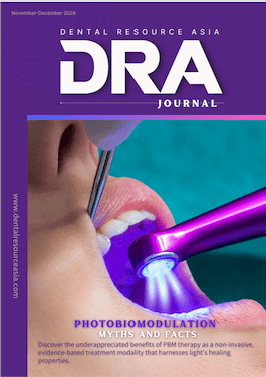USA: Associate Professor Camila Sabatini of the University at Buffalo School of Dental Medicine has been awarded the prestigious Harold Amos Medical Faculty Development Program (AMFDP) grant from the Robert Wood Johnson Foundation. This selective four-year, $420,000 award will enable her to investigate cutting-edge strategies for the regeneration of tooth defects, potentially reducing the need for traditional root canal treatments.
Collaborative Effort to Explore Stem Cell and Gene Therapy Approaches
Sabatini will collaborate with Techung Lee, associate professor of biochemistry at the Jacobs School of Medicine and Biomedical Sciences, and Frank Scannapieco, SUNY Distinguished Professor of Oral Biology, who will serve as an adviser for this fellowship. The research team plans to explore the use of stem cells derived from dental pulp and gene therapy techniques to promote the repair of damaged teeth.
“Over the past two decades, scientists have come to rely on stem cells for tissue regeneration. We haven’t tapped into that nearly enough in dental medicine,” Sabatini notes. “The standard of care in dentistry today — fillings and implants — is still quite outdated, as it is based on the use of synthetic materials only. We are looking to increase our understanding of the biology of the host, so we can identify potential avenues for tissue repair.”
Innovative Approaches: Drug Repurposing and Gene Therapy
The four-year grant will allow the team to investigate a drug-repurposing approach utilizing an immunostimulant drug currently used in cancer therapy, as well as a gene therapy strategy. “The appeal of drug repurposing is the potential for immediate clinical translation, since phase I trials can be bypassed, moving directly to phase II trials,” Sabatini explains. “Gene therapy could provide a cost-effective avenue for the healing of tooth defects.”
Scannapieco emphasizes the potential impact of this research, stating, “These innovative technologies have the potential to be widely applicable and cost-effective, ushering in a significant paradigm shift in dental care.”
The proposed animal studies could pave the way for regulatory approvals of these therapies and devices by the Food and Drug Administration (FDA).
Embracing Science in Dental Education
Sabatini, a previous recipient of a National Institutes of Health (NIH) research award, has been working to advance team science and research-driven dental education. “Embracing science at the core of dental education is the only path forward,” she says. “We, in academic centers, have a monumental task to evolve in our understanding of the profession and the factors that will influence the future workforce supply and demand.”
“Regenerative dentistry, while still in the early stages, will make its way into the mainstream as a non-invasive treatment option,” Sabatini predicts.
With this prestigious award, Sabatini looks forward to continuing to build her research program and contributing to the advancement of regenerative medicine in dentistry.
The information and viewpoints presented in the above news piece or article do not necessarily reflect the official stance or policy of Dental Resource Asia or the DRA Journal. While we strive to ensure the accuracy of our content, Dental Resource Asia (DRA) or DRA Journal cannot guarantee the constant correctness, comprehensiveness, or timeliness of all the information contained within this website or journal.
Please be aware that all product details, product specifications, and data on this website or journal may be modified without prior notice in order to enhance reliability, functionality, design, or for other reasons.
The content contributed by our bloggers or authors represents their personal opinions and is not intended to defame or discredit any religion, ethnic group, club, organisation, company, individual, or any entity or individual.

